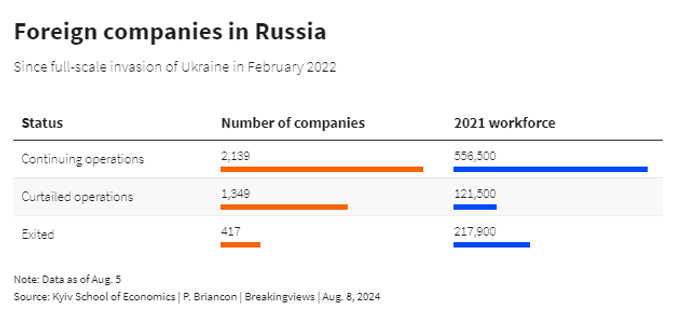Published 14:42 IST, August 9th 2024
Putin’s hostage deal is chilling for C-suites
Trading or investing in these countries would then become a much higher risk proposition.
- Opinion
- 3 min read

People trade. Business chiefs have many reasons to fear the consequences of the recent exchange of prisoners between Russia and Western powers. It could herald an era when hostage-taking becomes an ordinary tool of foreign policy for Moscow and set an example for other authoritarian regimes. Trading or investing in these countries would then become a much higher risk proposition.
Swapping spies was routine for decades during the Cold War, part of the diplomatic game between the Soviet Union and the United States and, to a lesser extent, Western Europe. Big powers spied on each other, sometimes caught the perpetrators, and in most cases ended up exchanging them after secret deals struck through diplomatic channels.
The tradition continued for some time after the fall of the Soviet Union. When the FBI in 2010 arrested 10 Russian spies living in the United States as “illegals”, they only spent a few days in custody before being exchanged against four prisoners that had been convicted of spying for the West in Russia.
The traditional rules of this game are no longer valid. To begin with, in the old days, the KGB — the Soviet intelligence service — didn’t routinely send agents abroad to assassinate opponents. Russian President Vladimir Putin, on the other hand, fought hard to obtain the liberation of intelligence operative Vadim Krasikov, serving a life sentence in Germany for the killing of an exiled Chechen dissident, and greeted him back in Moscow as a true “patriot.”
Another new worrisome trend is the imprisoning of random individuals to serve as barter currency in eventual deals. That seems to have been the main goal behind the arrests of U.S. journalist Evan Gershkovich and former marine Paul Whelan, both sentenced to 16-year jail terms in Russia on spying charges they denied.
Corporate bosses who insist that there is always business to be done with authoritarian regimes may want to reflect on this. According to data compiled by the Kyiv School of Economics, more than 2,000 Western companies still operate in Russia, and only about 400 have completely left since the beginning of the Ukraine war in 2022. That’s a large pool of potential hostages.

On top of this, other autocrats may want to emulate Putin: this new breed of hostage-taking, after all, seems to work. Western companies’ employees could then become obvious preys, to use as fodder for future swaps.
Democratic governments can at least try to make sure - as Germany seems to have done in the recent swap - that political dissidents be included in any prisoner exchange. But they will always negotiate deals to free wrongly convicted citizens. To avoid putting employees in harm’s way, CEOs could be more selective about the countries they do business in.
Updated 14:42 IST, August 9th 2024